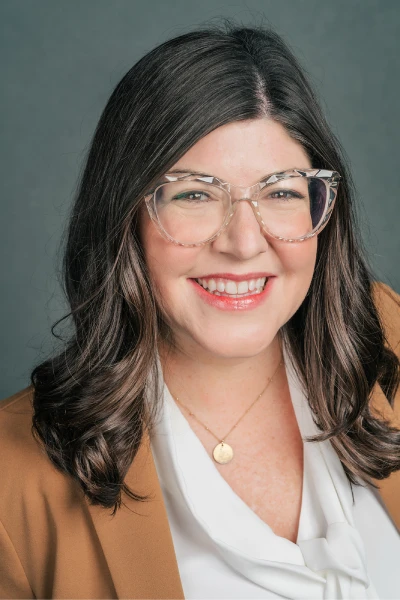
You’re on the couch and debating binge watching a TV series, working on a crossword puzzle or diving into a social media vortex. Kate Zipay has another suggestion. Try a business-related book, watch a TED Talk, or take some sort of MasterClass — all activities to help you thrive at work.

The concept of leisure-work synergizing, or intentionally structuring leisure domain activities to contain elements from the work domain in an attempt to increase skills and competencies, may sound contradictory to some. But Zipay, an assistant professor of organizational behavior and human resources in Purdue University’s Mitch Daniels School of Business, says employees can gain self-confidence and thrive at work as a result.
“Most of the research that’s been done in this area treats time away from work as recovery, dating back to the Industrial Revolution when there was a clear bifurcation between work and home,” Zipay says. “I think we should treat leisure and work as allies, not enemies. If people embrace the messiness that leisure time can represent and use it to their advantage, it can have a positive effect on both their personal and professional lives.”
Zipay and Jessica Rodell, the William Harry Willson Distinguished Professor at the University of Georgia, worked with a staffing company in the southeast to track employees over a five-week period. Their paper, “Have your cake and eat it too? Understanding leisure-work synergizing and its impact on employee thriving,” is forthcoming in Organization Science.
The researchers found that those who engaged in leisure-work synergizing activities thrived at work the following day without suffering fatigue or burnout. Employers found the participants’ work improved and, specifically, employees made their voices more heard at work as a result of their increased self-confidence. That dynamic was especially true of employees who were considered “integrators,” those who more naturally blend their work and private lives, as opposed to “segmenters,” employees who prefer a boundary between the two.
“Most of the research that’s been done in this area treats time away from work as recovery. I think we should treat leisure and work as allies, not enemies."
The study has implications for employers as well as their workers.
“It’s important for people to have enough free time to be able to integrate these kinds of activities,” Zipay says. “Instead of bringing ping pong tables into the office to encourage people to stay longer, give them time to make personal improvements on their own.
“It actually takes some of the burden away from the employers, because they don’t have to be solely responsible for improving worker skills.”
Zipay was named one of 50 “Best Undergraduate Professors” in 2021 by Poets & Quants and recently received the Jay Ross Young Faculty Scholar Award at the Daniels School. She says the study opens the door for future inquiries. Can leisure-work synergies be performed with co-workers rather than individually? Do these activities improve thriving at home in addition to work? Is there a tipping point that will produce diminishing returns?
In the meantime, Zipay hopes people will consider the benefits of leisure-work synergy as they plan their daily routines.
“Time outside of work has become increasingly important and accessible to working adults,” she says. “By taking a blended approach, employees really can have their cake and eat it, too.”